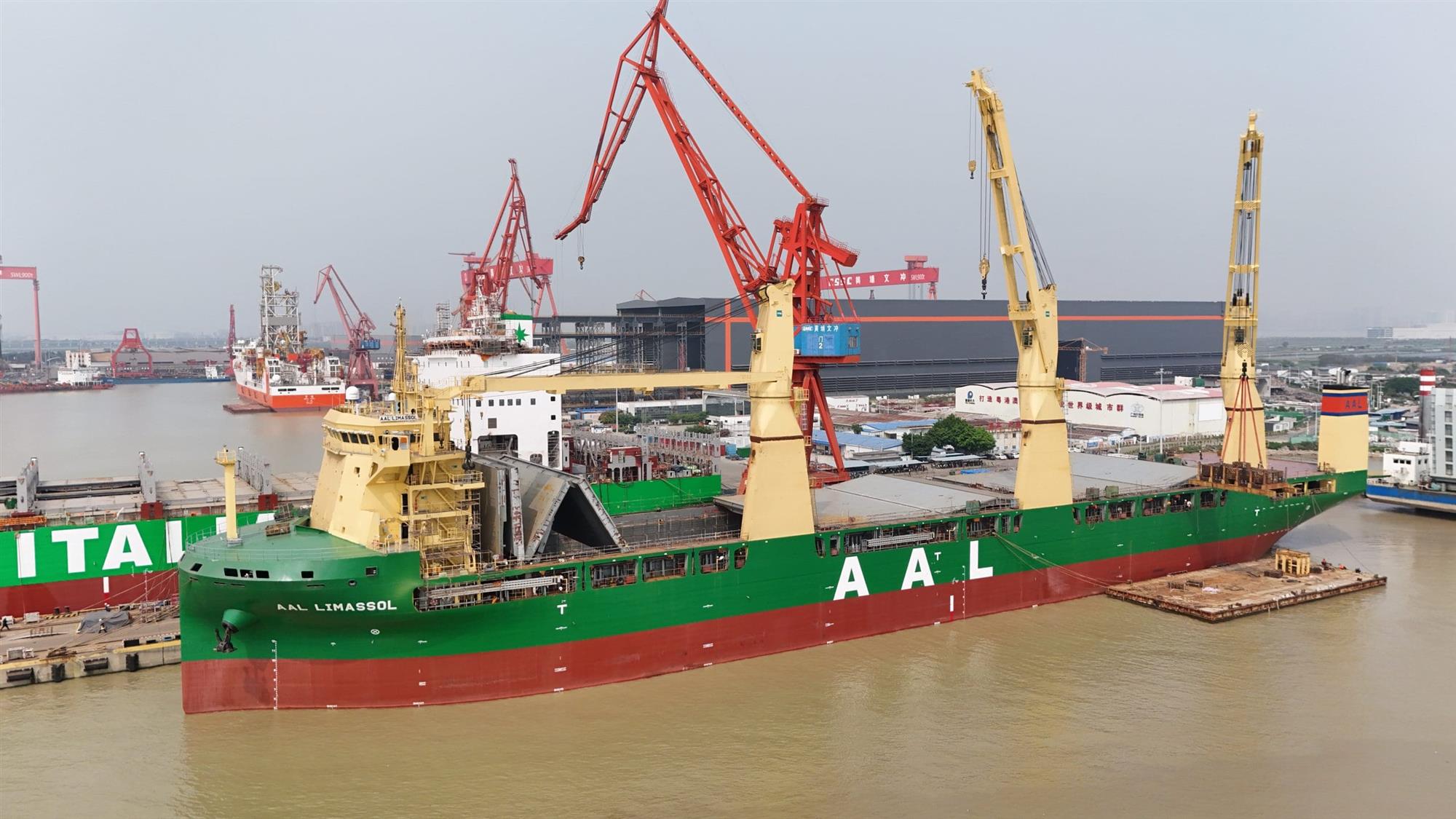AAL Shipping (AAL) has added an additional two ships to its order of six 32,000 deadweight (DWT) heavy lift Super B-Class vessels.
The two additional vessels, to be named the m/v 'AAL NEWCASTLE' and 'AAL MUMBAI', will each feature an increased maximum heavy lift capability of 800 tonnes, compared to the rest of the Super B-Class fleet, which can each lift a maximum of 700 tonnes.
These vessels will bring AAL's total fleet tonnage to 831,800 DWT.

[Source: AAL]
Super B-Class fleet grows to eight ships
"AAL's new order of an additional two Super B-Class powerhouses brings our new building fleet up to eight vessels and 256,000 DWT. This is a strategic move to strengthen our global industrial projects foothold and boost our capacity and service levels on major shipping lanes connecting Oceania, Asia, the Middle East, Europe, and the Americas," said Kyriacos Panayides, CEO of AAL.
He noted that an investment of this kind for AAL's third-generation building plan is not something that the liner takes lightly, as it was made with the needs of its project customers in mind.
Christophe Grammare, managing director of AAL, said the maiden voyage of the first of AAL's Super B-Class fleet, the 'AAL LIMASSOL', has already broken all voyage performance records for AAL, with over 77,000 freight tonnes of cargo booked onto her planned journey from Asia to Europe.
A broad mix of project heavy lift and general cargo includes two 135-metre-long barges —1,650 and 1,425 tonnes, respectively— fifteen 80.5-metre-long wind blades, modules, trucks, transformers, a dismantled crane and much more.
Grammare said this demonstrates the objective of achieving greater economies of scale for our shippers as compared to most other MPVs.
"Looking into the future, the trend in industrial project cargo is towards fabricating larger and more complex components, and we need to be ahead of that curve."
"The combination of these new ships' unique design, cargo handling technologies and heavy lift capabilities — which on the two additional vessels has increased to 800 tonnes maximum lift — allows them to also accommodate the far bigger and heavier cargoes of tomorrow, ones that until now may have been out of our reach," he added.